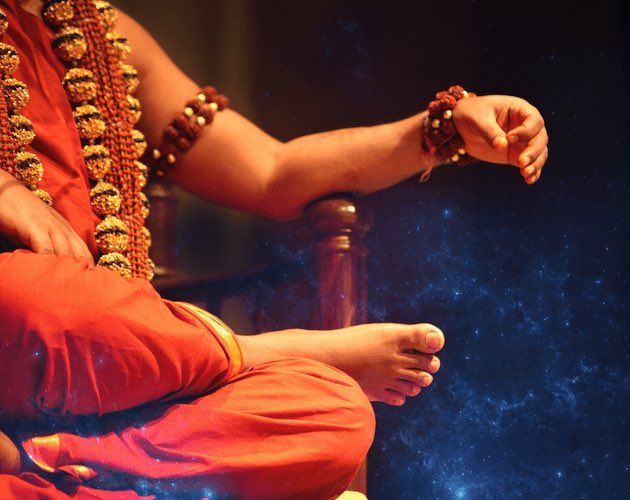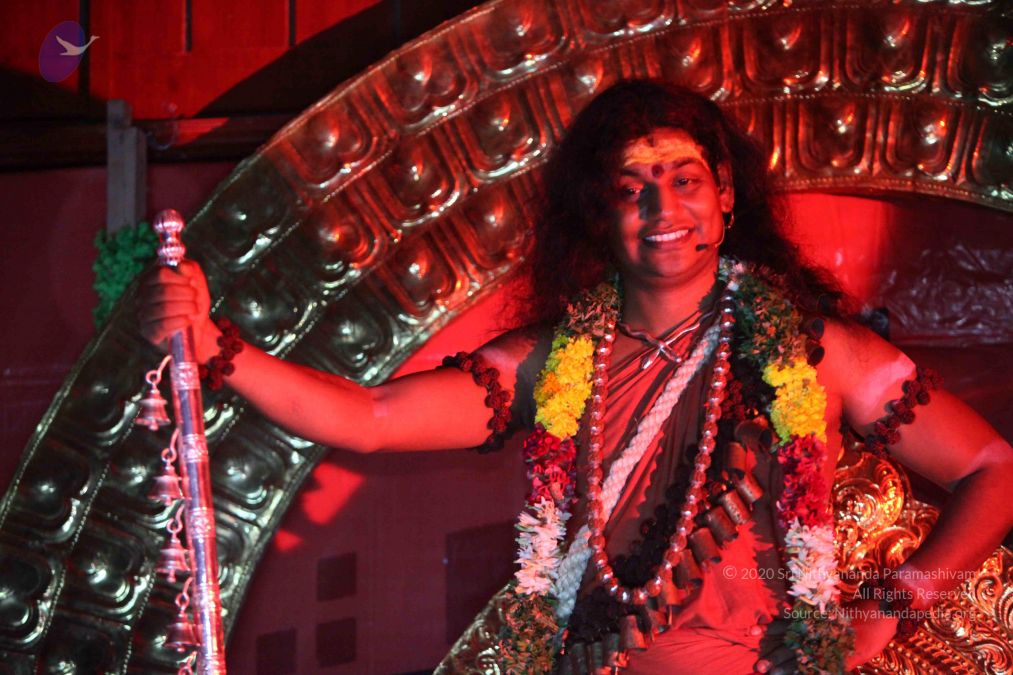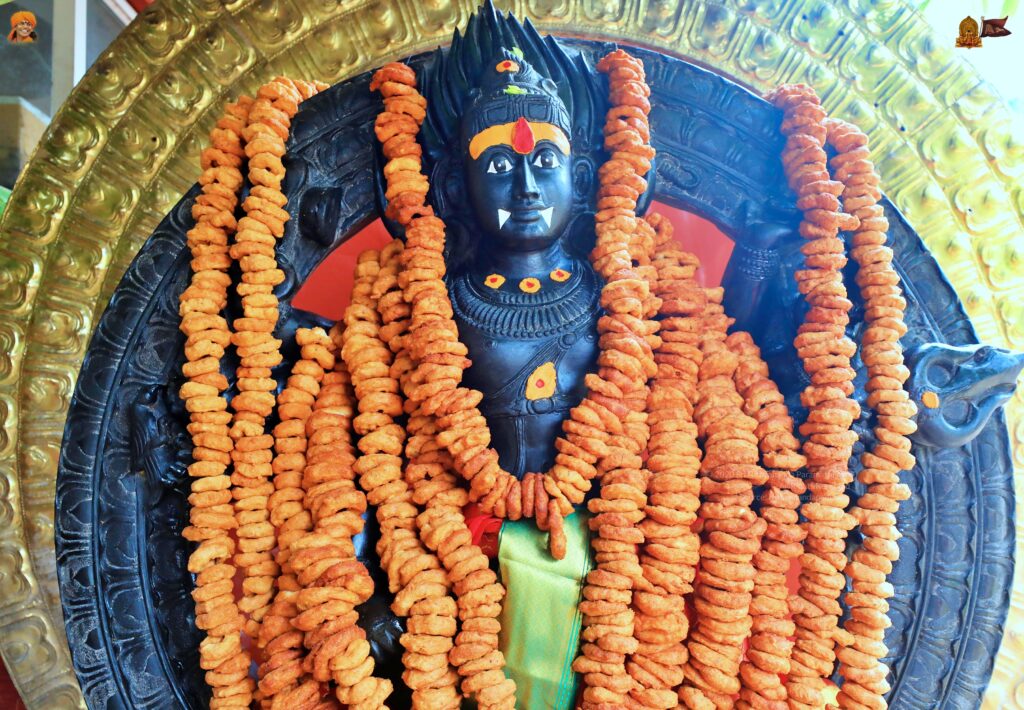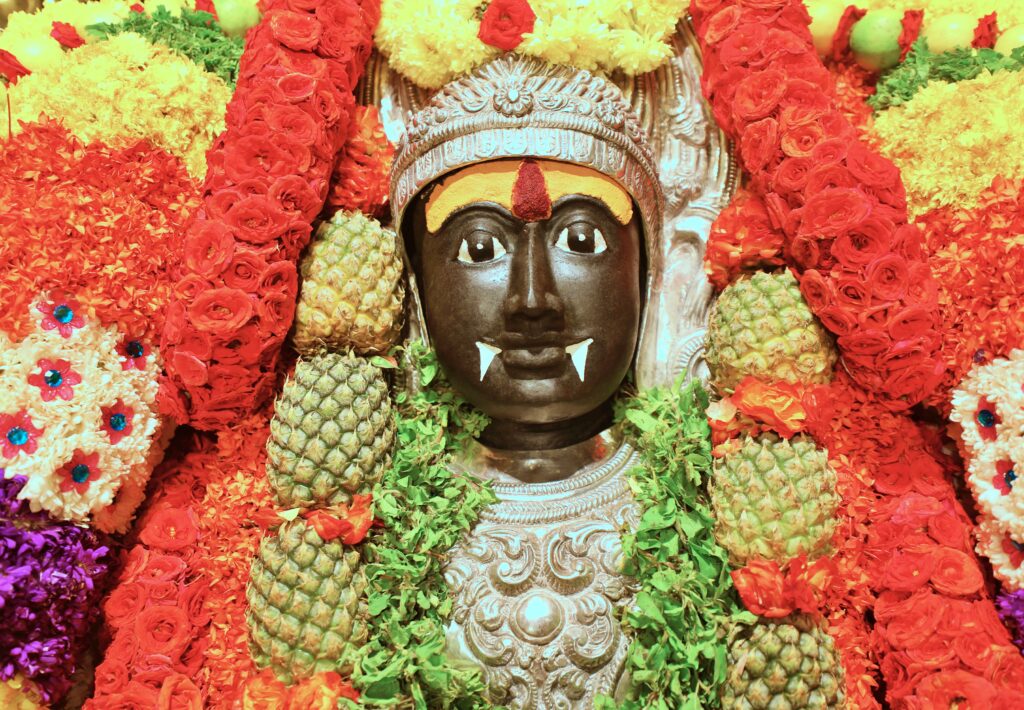Śrāddha is an action or obligatory ritual that is done to help the deceased get a new body or get a path of deliverance from their pain. Śrāddha is an offering done unto lord Visnu, who, in the form of Aryaman, accepts the share of offerings on behalf of the pitru.
Many of us in this day and age, at this time, are consumed by thoughts and confusion.
What awaits us after death? Are our loved ones connected to us even after they die? Why are we experiencing so much pain and suffering in our lives?
Garuda Purana explains that the Pitru do not die. They only change their body. After their death, they usually find a new body to be born within the 12th day of the death based on their karma. But in some instances, the Pitru, for various reasons and also based on their karmic deeds, cannot find another body. They remain stuck in the form of Pitru. The Pitrus have their heavenly place to reside, called Pitru Loka. It is explained in various Puranas that the universe has 14 lokas. It is also known as the realm between heaven and earth. It is the place where the Pitrus go after death. Offering libations of water and til (gingerly) to the pitrus to satisfy and elevate them to higher spiritual planes is called “pitru tarpaNam. This pitru tarpana is done to give a beautiful farewell or to release the soul from bondage.
In Bhagavad Gita, Lord Shri Krishna says, “He is ARYAMA among pitrus”.
अनन्तश्चास्मि नागानां वरुणो यादसामहम् |
पितृणामर्यमा चास्मि यम: संयमतामहम् ||10.29||
anantaścāsmi nāgānāṃ varuṇo yādasāmaham |
pitṛṇāmaryamā cāsmi yama: saṃyamatāmaham ||10.29||
Of the serpents, I am Ananta. Of the water deities, I am Varuṇa. Of the ancestors, I am Aryama and of the ones who ensure discipline, I am Yama.
– Bhagavad Gita, Chapter 10, Verse 29
Śrīmad-Bhāgavatam (Bhāgavata Purāṇa) says…
ततोऽधस्ताद्यक्षरक्षः पिशाचप्रेतभूतगणानां विहाराजिरमन्तरिक्षं यावद्वायुः प्रवाति यावन्मेघा उपलभ्यन्ते ॥५॥
Beneath Vidyadhara-loka, Caranaloka and Siddhaloka, in the sky called antariksa, are the places of enjoyment for the Yaksas, Raksasas, Pisacas, ghosts and so on. Antariksa extends as far as the wind blows and the clouds float in the sky. Above this there is no more air.
ततोऽधस्ताच्छतयोजनान्तर इयं पृथिवी यावद्धंसभासश्येन सुपर्णादयः पतत्त्रिप्रवरा उत्पतन्तीति ॥६॥
Below the abodes of the Yaksas and Raksasas by a distance of 100 yojanas [800 miles] is the planet earth. Its upper limits extend as high as swans, hawks, eagles and similar large birds can fly.
The Pitru loka is considered a transit point between many lokas. Vedic scriptures say that when any person dies, the person immediately goes to Pitru Loka, and then, based on their modes of nature, they either journey to the higher lokas or reincarnate on this earth.
Bhagavan Shri Krishna says…
Lord Krishna says to Arjuna that amongst the Pitru, he is Aryaman. Aryaman, therefore, is the best among Pitru and the ruler among them as he is also one of the 12 Adityas who themselves are kings. So, Aryaman, the Incarnation of Lord Sri Krishna, is the deity who rules the Pitru loka and not Yama. The concept of Yama is that he awards & facilitates your deeds & awards your body depending on one’s karma.
Vedic scriptures consider a human birth as a birth of higher consciousness & learning, unlike animals who don’t have a higher goal than to eat, sleep, and mate. The birth of a responsible human is full of responsibility & mindful actions; understanding that this birth is so precious, Vedas have recommended different levels of samskara for this species to help them elevate to higher consciousness; there is altogether १० sanskara, which is recommended in Vedas. Which also means ”dasha-samskara,” the final of which is ” Antyeshti-samskaras, “of which Shradh is one of the rituals.
Vedic Scriptures assert that the next birth, the family one is born in, is based on their count of good and bad karmas That is, if a person does criminal activities in the previous birth, then the person would find himself getting born in a family with truckloads of “Pitra Dosha” to their credit in the next birth. That is, the soul needs to repay all the agony and troubles inflicted on others during the previous birth and will go through the same type of agony and troubles in their current life in the name of Pitra Dosha.
If a person lives ethically/morally correctly in the previous life and carries a higher level of good Karma, then the Soul would be lucky enough to be born in a family with good Parents and no (or) limited level of Pitra Dosha in the current life. Thus, everybody pays for their sins (committed during the previous life) in the name of “Pitra Dosha” during the current lifetime. Pitra Dosha could be minimized but not eliminated in anybody’s life.
Controlled study on ancestral worship
A multi-method study was conducted to learn more about the Hindu perspective on ancestral worship and the factors behind the conducting of those rituals. For the first phase, 198 participants (119 males and 79 females) completed a survey about their understanding of and participation in ancestral worship. Participants were between 18-70 years of age. This phase included Hindu believers from various cities nationwide, including those who spoke various languages and dialects.
As India is a diverse nation, participants from various regions of the country were able to add value to the research data collected. For the second phase of this study, seven participants (four males and three females) were interviewed to gain an in-depth understanding of their beliefs and participation in ancestral worship.
Quantitative Findings
The quantitative data collected via questionnaires indicated that over two-thirds (68.2%) of the respondents believe in Hindu practices. When the same respondents were asked if they believe in family ritual practices, a similar number (63.3%) reported that they do. However, when asked if they believe in the ceremonies related to deceased family members, only three in five (60.6%) reported that they believe in such rituals.
These studies show us that some Hindus are performing rituals to honor the pitrus, while much younger generation Hindus are not due to many reasons. In today’s age, we are BLESSED by Devi Parashakti for giving the boon of the path of liberation through the pitrus/ ancestors. It has been revealed in a most efficient, powerful, and successful way in which to perform no matter what age or walk of life, we all can receive this auspicious blessing.
After the Supreme Pontiff of Hinduism began revealing the akashic reading in the bhava samadhi of Devi, Devi Parashakti declared that anyone in the Nithyananda clan seven generations before and after, right and left, would be liberated.
We are all truly blessed to live in the AGE OF THE AVATAR, where all our pitrus/ancestors can be liberated just by being a part of the Nithyananda Clan. The path of liberation to experience intense completion with our pitrus in the bio memory and muscle memory!



